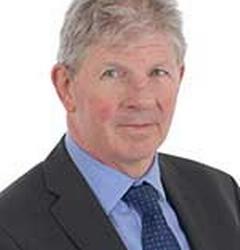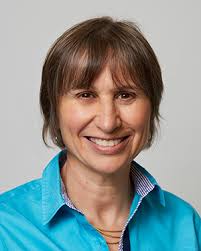Education for all those who need it!
Here you’ll find ther latest in our educational offerings for healthcare professionals and all those going through menopause or wanting to support those who are!
Meet the Menopause Masterminds





The Menopause Research and Education fund is pleased to announce our series of interviews with leading menopause specialists, researchers and academics from across the globe.
Kicking off the series is renowned cardiologist and author of ‘A Woman’s Heart,’ Prof. Angela Maas.
The main focus of her work is cardiac symptoms in women at middle-age and the role of female-specific risk factors in (early) heart disease. She is also the founder of an expert centre for microvascular coronary disease at the Radboud University Medical Center in the Netherlands.
Next is Professor Tim Hillard.
Mr Hillard is a consultant gynaecologist, past chair of the British Menopause Society and a current member of its medical advisory panel and the newly appointed editor of the International Menopause Society’s journal Climacteric.
He has a special interest in uro-gynaecology and the Genirourinary Syndrome of Menopause (GSM).
Then we have Professor Rodney Baber, Past President IMS and Chair of the Scientific Programme Committee for the 2024 IMS World Congress on Menopause in Melbourne.
He is also Past President of The Australasian Menopause Society, the former Editor in Chief of Climacteric and an associate editor of The Australian and New Zealand Journal of Obstetrics and Gynaecology.
His awards include membership of The Order of Australia for services to Obstetrics and Gynaecology in clinical medicine and research and The RANZCOG Distinguished Service medal.
Professor Susan Davis, also from Melbourne’s Monash University, is a world leader in menopause research on hormones, especially testosterone and she has given us a fantastic insight into where research is up to when it comes to testosterone replacement as part of MHT/HRT.
And, Dr Pauline Maki, a professor of psychiatry, psychology, gynaecology and obstetrics and one of the world’s leading authorities on menopause and the brain has talked us through what we know so far about the effect of menopause on the brain on cognition/brain fog, dementia and Alzheimer’s Disease.
We also have Prof. Jayashri Kulkarni, a professor or psychiatry at Monash University who has a special interest in women’s mental health and its relationship to reproductive changes and hormones.
These videos and many more are available on the MREF YouTube channel.
A NEW SERIES OF INTERVIEWS WITH LEADING MENOPAUSE EXPERTS FROM ACROSS THE GLOBE.

The Menopause Research and Education fund is pleased to announce our series of interviews with leading menopause specialists, researchers and academics from across the globe.
Kicking off the series is renowned cardiologist and author of ‘A Woman’s Heart,’ Prof. Angela Maas.
The main focus of her work is cardiac symptoms in women at middle-age and the role of female-specific risk factors in (early) heart disease. She is also the founder of an expert centre for microvascular coronary disease at the Radboud University Medical Center in the Netherlands.

Next is Professor Tim Hillard.
Mr Hillard is a consultant gynaecologist, past chair of the British Menopause Society and a current member of its medical advisory panel and the newly appointed editor of the International Menopause Society’s journal Climacteric.
He has a special interest in uro-gynaecology and the Genirourinary Syndrome of Menopause (GSM).

Then we have Professor Rodney Baber, Past President IMS and Chair of the Scientific Programme Committee for the 2024 IMS World Congress on Menopause in Melbourne.
He is also Past President of The Australasian Menopause Society, the former Editor in Chief of Climacteric and an associate editor of The Australian and New Zealand Journal of Obstetrics and Gynaecology.
His awards include membership of The Order of Australia for services to Obstetrics and Gynaecology in clinical medicine and research and The RANZCOG Distinguished Service medal.

We also have Prof. Jayashri Kulkarni, a professor or psychiatry at Monash University who has a special interest in women’s mental health and its relationship to reproductive changes and hormones.

Professor Susan Davis, also from Melbourne’s Monash University, is a world leader in menopause research on hormones, especially testosterone and she has given us a fantastic insight into where research is up to when it comes to testosterone replacement as part of MHT/HRT.

And, Dr Pauline Maki, a professor of psychiatry, psychology, gynaecology and obstetrics and one of the world’s leading authorities on menopause and the brain has talked us through what we know so far about the effect of menopause on the brain on cognition/brain fog, dementia and Alzheimer’s Disease.
The videos are available on the MREF YouTube channel.
MREF CPD certified Education - Now online and on demand!
CPD accredited ‘Menopause 101’ course for Healthcare Professionals.
We are pleased to announce that our Menopause Research and Education Fund Education day is now available online.
It’s a CPD accredited full day of online study (worth 8 CPD points), designed for healthcare professionals – doctors, nurses and allied healthcare professional recorded live in April.
It is delivered by British Menopause Society (BMS) accredited menopause specialists and an experienced pelvic floor physiotherapist.
It covers:
- symptoms and diagnosis
- prescribing HRT including testosterone
- lifestyle advice,
- the metabolic changes menopause creates
- mental health and menopause
- cancer and menopause
- unscheduled bleeding management
- pelvic floor and bladder issues
- the genitourinary syndrome of menopause
- progesterone intolerance…and much more.
If you would like to access the course please make a £20 donation to the MREF using the ‘Donate’ button below and send a message via the donation page, or email hello@mref.uk saying you’ve donated and would like to access the course, and we will send you the link to the recording of the course we held in April.
Click below to watch one of the modules.
Stay tuned for more details or email hello@mref.uk
Subscribe to the MREF Newsletter! A quick wrap of what's new menopause, delivered directly to your inbox!
We know how hard it is to stay on top of everything that comes out in the medical press, but if you have an interest in menopause and want to stay up-to-date, you need this in your inbox!

| The quiz. | AM | AM | PM | PM | |
| True | False | True | False | ||
| 1. | HRT should be stopped after 5 years | ||||
| 2. | Patients should stop taking HRT at the age of 60. | ||||
| 3. | You should not start a patient on HRT if they are over 60 years of age. | ||||
| 4. | A patient with controlled hypertension can have HRT | ||||
| 5. | Patients with migraine with aura should not use HRT. | ||||
| 6. | All HRT is contraindicated in patients who have previously had a DVT. | ||||
| 7. | Testosterone should be started at the same time as estrogen and progestogen. | ||||
| 8. | Patients on systemic HRT do not need topical vaginal HRT. | ||||
| 9. | Women with a family history of breast cancer can still consider HRT as a treatment option | ||||
| 10. | HRT is only suitable for patients with severe symptoms. | ||||
| 11. | HRT does not cause weight gain | ||||
| 12. | Taking HRT just delays the menopause symptoms. | ||||
| 13. | Patient’s should stop using local/topical (vaginal) estrogen after a 3 month course. | ||||
| 14. | Perimenopausal patients taking HRT need contraception too. | ||||
| 15. | Transdermal HRT started in early menopause increases your risk of heart disease. | ||||
| 16. | Women who go through early menopause or premature ovarian insufficiency should be on HRT until at least the age of 50-51. | ||||
| 17. | Bio-identical or compounded HRT products are safer than NHS approved medications. | ||||
| 18. | Patients can only be perimenopausal if they have started to have changes to their menstrual cycle. | ||||
| 19. | If the FSH level is normal the patient can still be perimenopausal. | ||||
| 20. | Hormonal blood tests are not needed to diagnose perimenopause if the patient is aged 45 or over. | ||||
| 21. | Patients can have HRT if they are obese. | ||||
| 22. | Higher than licensed doses of estrogen are often needed to achieve symptom control. | ||||
| 23. | Antidepressants are the first line option for patients developing new mood changes during perimenopause/menopause. | ||||
| 24. | Patients who are still symptomatic when using a combined patch can add extra estrogen gel or spray if needed. | ||||
| 25. | Vaginal estrogen can be offered to women who have had breast cancer and are taking tamoxifen or have finished their course of endocrine treatment. | ||||
| 26. | If using Utrogestan vaginally, the standard dose can be halved due to improved absorption (i.e 100mg alternate nights if on continuous regime or 100mg for 12-14 days if on sequential regime). | ||||
| 27. | Patients can add extra estrogen on the days they feel they need it. | ||||
| 28. | The prevention of dementia is an indication for prescribing HRT. | ||||
| 29. | The ‘window of opportunity’ applies to the benefits of HRT to bone health. | ||||
| 30. | Bleeding while taking HRT has same risks of endometrial pathology as postmenopausal bleeding |
| ● | |
| ● | |
| ● | |
| ● |
| Welcome and introduction | |
| Menopause – are you joining the dots | |
| Menopause – what’s happening to the hormones | |
| Testosterone, sex and libido | |
| HRT – the benefits and risks explained | |
| GSM and topical treatments | |
| POI and early menopause | |
| Menopause & lifestyle | |
| Gender and race tool kit | |
| Progesterone & unexplained bleeding | |
| Progesterone mental health, intolerance & PMS/PMDD | |
| Menopause & other relevant medical/gynaecological conditions | |
| Menopause, weight and metabolic syndrome. | |
| Menopause and cancer | |
| Menopause, bladders, prolapse and UTIs | |
| Menopause myths and misconceptions | |
| Participant feedback |

